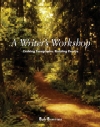 |  A Writer's Workshop: Crafting Paragraphs, Building Essays Bob Brannan,
Johnson County Community College
Revising Paragraphs
Summary1.When revising your first draft, focus on issues related to content and organization. |
 |  |  | 2.If your paragraph is a description, consider the following questions: * Are you really describing a place and not slipping into narrative?
* Does your description have an overall point?
* Are you occasionally telling your reader what to think about the details?
* Are you using enough specific language? |
 |  |  | 3.If your paragraph is a narrative, consider the following questions:* Has your narrative gotten out of hand and grown into a sort-of essay?
* How well have you sketched the setting?
* Have you described people sufficiently?
* Is the significance of the event clear? |
 |  |  | 4.If your paragraph is expository (illustration, classification, cause and effect, process analysis, comparison/contrast), consider the following questions:* Have you used three or four examples, or have you only developed one?
* Have you clearly arranged your main examples--either by time or importance?
* Are your examples fully explained and developed? |
 |  |  | 6.When editing a paragraph with any pattern of development, pay close attention to spelling, sound-alike words, missing words, wrong words, sentence fragments, comma splices/run-ons, capitalization, and other mechanical issues. |
 |  |  | 7.Proofreading is the last step in the preparation of your paper. This is where you put on the final polish before handing in your work. |
|



 2002 McGraw-Hill Higher Education
2002 McGraw-Hill Higher Education